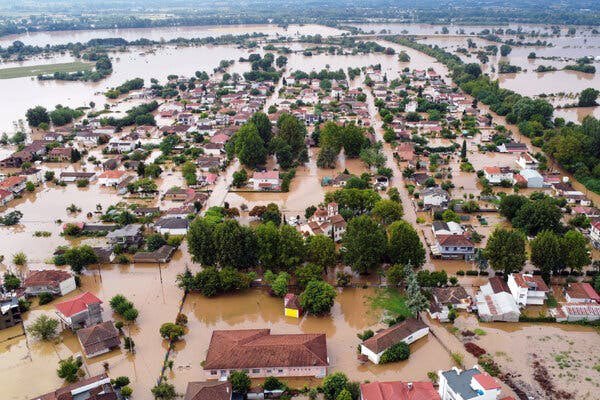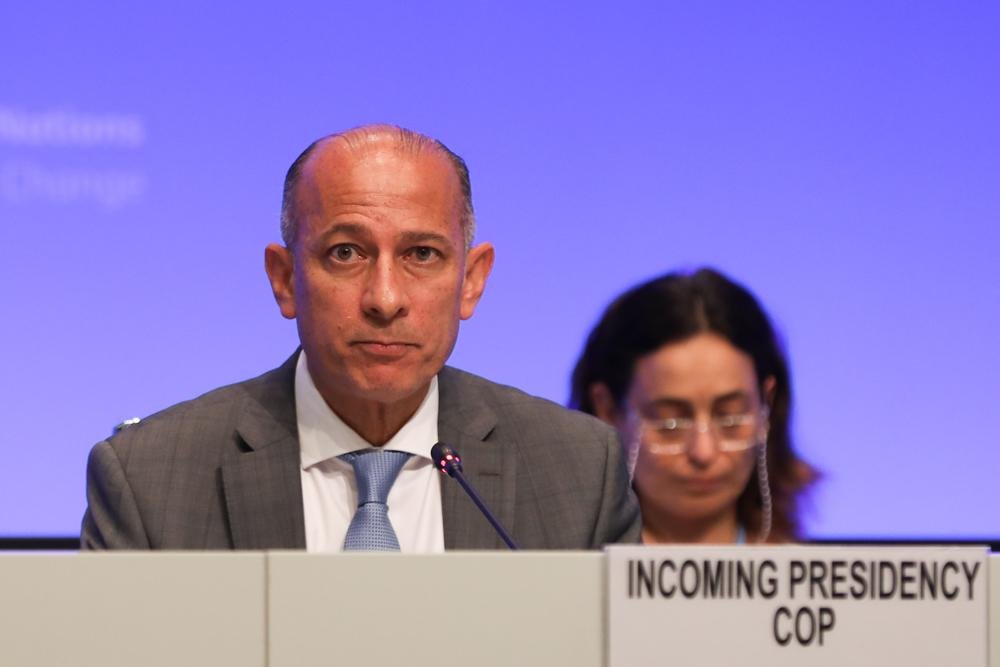The aftermath of Storm Daniel has left the once-fertile plain of Thessaly in Greece shrouded in a sense of despair and devastation. As floodwaters slowly recede, families mourn their loved ones, and authorities grapple with assessing the extent of the destruction, it is evident that the heart of Greece’s agriculture has been left unrecognizably shattered.
The landscape that remains is one of despair, marked by drenched fields and the detritus of all that was swept away by the storm – from animals to infrastructure. Greek soldiers, donning masks and protective suits, have been tirelessly collecting the carcasses of over 200,000 animals lost in the deluge. The fear of potential outbreaks of infectious diseases adds urgency to the race to remove decaying remains from farms and pens, even in areas that are described as nearly impassable.
A pervasive stench hangs over Thessaly, where the death toll, both human and animal, continues to rise. At least 17 people have lost their lives in the floods, and vast swathes of cotton and corn fields, along with numerous villages and towns, remain submerged under layers of mud and sludge.
Greeks are grappling with a mix of relief and anger in the wake of Storm Daniel, especially considering the devastating impact it had on Libya, where the death toll has surpassed 11,000. While they count their blessings, anger simmers over the perceived lack of flood prevention measures taken. It is widely accepted that this month’s storms, fueled by an unusually hot summer, are a once-in-several-hundred-years occurrence. The torrential rains unleashed by Daniel were the most severe on record since the 1930s.
Greece’s leading climatologist, Professor Christos Zerefos, described Storm Daniel as “the perfect storm.” Locked between two meteorological systems, it remained stationary, relentlessly drawing energy from the increasingly warm Mediterranean Sea and unloading the equivalent of a year’s worth of rain on Thessaly in just two days.
At 80 years old, Professor Zerefos, who has studied changing weather patterns for decades, confessed that Daniel was an extremely rare event, one he never expected to witness. However, he expresses concerns that, due to a destabilized atmosphere caused by climate change, such events may not be isolated. He fears the possibility of similar extreme weather events occurring every four to five years, causing not only severe destruction but also significant financial costs.
With many in Greece’s agricultural heartland facing financial ruin, particularly in the livestock sector, the government under Kyriakos Mitsotakis faces mounting criticism. Greece has experienced a summer of devastating wildfires, including one that consumed an area equivalent to the size of New York City in the northeastern region of Evros, earning it the title of Europe’s largest wildfire.
There is growing public concern that Greek state authorities are ill-prepared to deal with such natural disasters, especially in a region already recognized as a climate emergency hotspot. The sight of residents in Thessaly being rescued by volunteers before official civil protection units could reach them has fueled the perception of governmental incompetence.
Public opinion surveys reveal mounting frustration, with 61% of respondents expressing a negative opinion of the government’s handling of the situation, compared to 57% in May. Analysts are now beginning to use the term “failed state” when describing the nation’s predicament, marking a significant shift in perception since Mitsotakis’s re-election in June.
In his recent annual economic speech, Mitsotakis acknowledged the challenges posed by the climate emergency and announced local and EU-funded relief measures for flood victims. He also pledged to address structural deficiencies in the system to better cope with successive disasters.
As Greece grapples with the aftermath of wildfires and floods, the climate has emerged as a formidable adversary. The devastating consequences of Storm Daniel have underscored the urgent need for immediate action to prevent future disasters and protect Greece’s vulnerable regions from the growing impacts of climate change.










